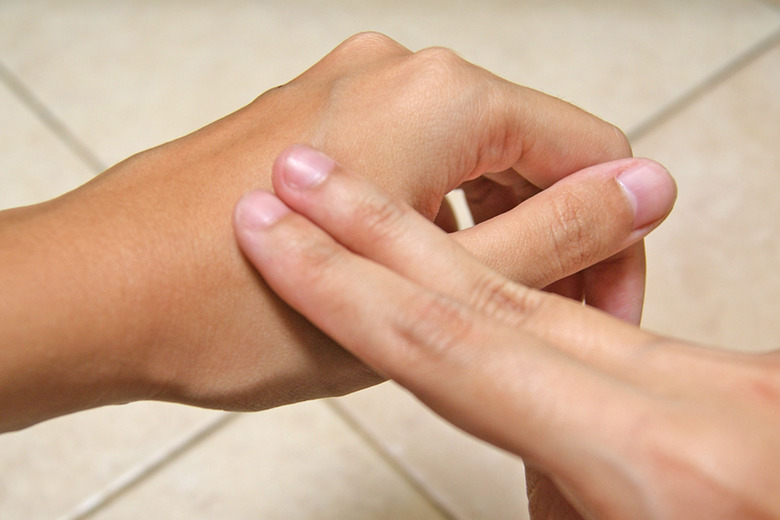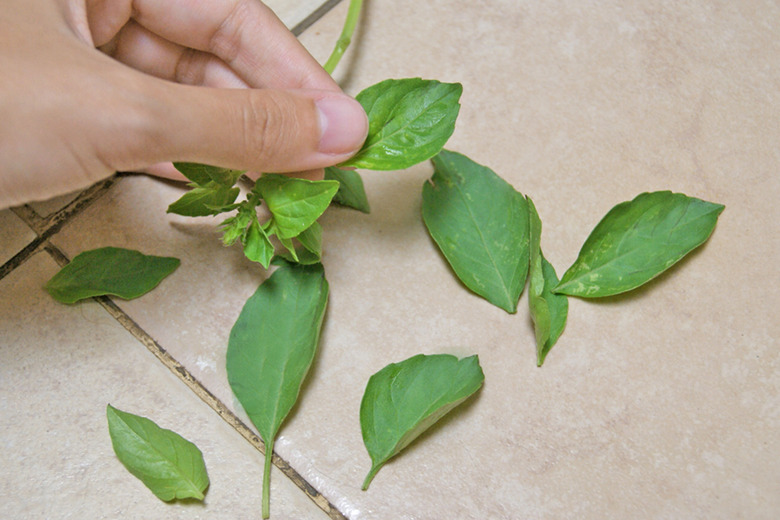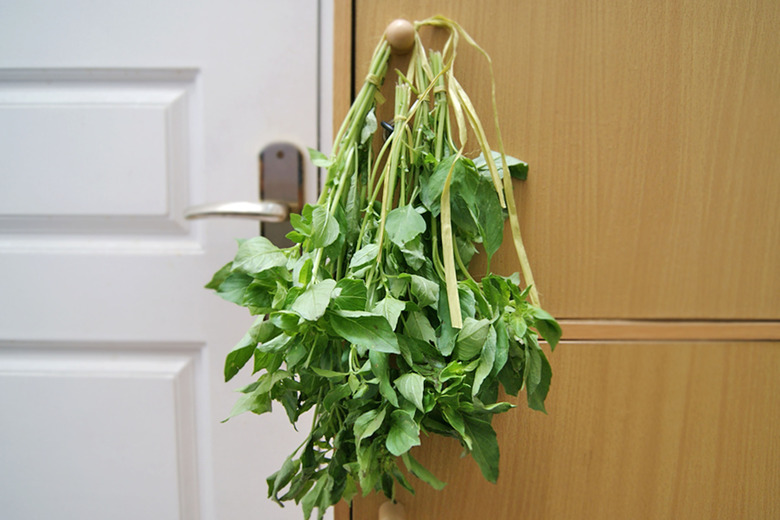How To Use Basil As An Insect Repellent
Chemical insect controls work well in the garden, but they have many negative side effects. Insecticides kill indiscriminately, harming both pests and beneficial insects such as bees. It's also unwise to spray potentially toxic chemicals around pets, children, and food crops. Instead, consider using basil as a natural insect repellent. You can use basil as a companion plant or rub it on your skin for personal protection. You can also crush or burn basil leaves to deter unwanted pests. Doing so eliminates pests without harming the insects that help your lawn and garden.
Use as a Skin Protection
Use as a Skin Protection
Whether you're working in your yard or simply enjoying some time outdoors, you'll want to do so without pesky insects hovering around. Instead of spraying yourself with DEET or other chemicals, simply crush a few basil leaves and rub them on your skin and clothing. The basil will repel bothersome pests, including mosquitoes. If mosquitoes are your most prominent pest, lime basil (Ocimum americanum) and holy basil (Ocimum sanctu) work best. Any basil variety will help, however.
Practice Companion Planting
Practice Companion Planting
The premise of companion planting is that growing certain plants offer the plants mutual benefits. Basil's aromatic oils are known to repel a thrips and a variety of flies, so you can plant basil next to any plants troubled by these pests. Basil has a reputation for repelling horn worms, too, so is often planted near tomatoes. Be aware, however, that companion planting isn't fool-proof. Basil repels many insects but may attract katydids and Japanese beetles.
Scatter Shredded Basil
Scatter Shredded Basil
Dining on the patio tonight? Cut some basil leaves off your plants with a sharp knife. Bruise the basil leaves and strew them on your porch or patio to enjoy your dinner without insects buzzing around. Put shredded basil in dishes on outdoor tables to help repel mosquitoes or place stalks of basil in your fresh floral centerpiece.
Burn Basil as an Incense
Burn Basil as an Incense
Lime basil repels insects when burned. Burning herbs when they are fresh works best as a repellant, but this may produce more smoke than you want.
If you prefer, you can dry your basil before burning it. To dry basil, hang it by its stems or spread the leaves on trays in a dark, dry place. If you don't have a dark place such as a closet or cupboard for drying the herbs, put them in a paper bag. Sunlight reduces the herb's pungent scent and effectiveness.
Once the basil is fully dry, it's ready to burn. Dry basil will crumble when you crush it. Use a fire-safe container—such as a metal container with holes in the lid designed for burning incense—and keep the container away from other flammable materials to reduce the risk of fire.


